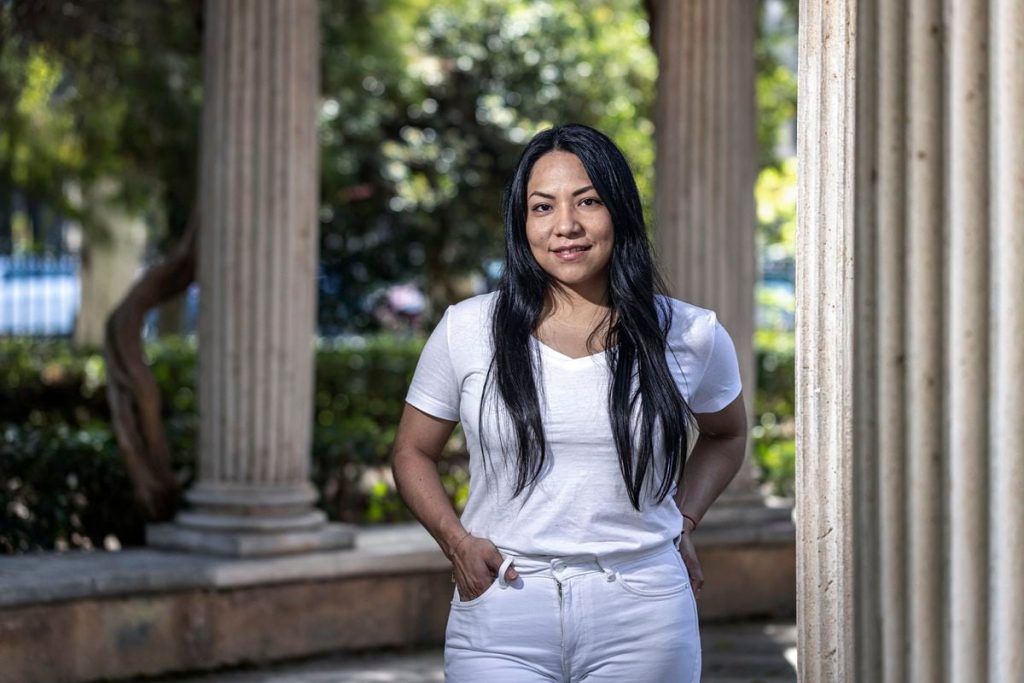There has never been so many students from outside the European Union in Spanish universities and training centers. A change in the regulations governing the entry of foreigners to the country allows these students to work up to 30 hours per week since mid-2022. According to data from the Ministry of Inclusion and Migrations, Spain issued 122,460 study permits (degree, postgraduate, vocational training, and other courses) or professional internships last year, a third more than the 81,346 registered in 2021, before the change in the regulations. The growth in Russian students is striking, although the presence of Latin American populations leads the way, followed by students from the United States, China, and Morocco, each contributing more than 5,000 students.
Universities agree that this regulatory change is key for many students to be able to afford their stay in Spain. Before the reform, a student depended on their savings or their family’s economic capacity to sustain themselves, but by allowing students to cover their expenses with a few hours of work per week, class barriers diminish, enhancing diversity in higher education in the country. The latest data from the Migration Observatory, linked to the Ministry of Inclusion, shows that the majority of incoming students are women (56%) with an average age of 26. Geographically, over half of the foreign students process their stay authorization in the Community of Madrid (25.94%), Catalonia (24.45%), and the Valencian Community (15%).
For Latin Americans, the increase in youth unemployment and insecurity, which has risen in the region since the pandemic, has pushed many young people to continue their education in Europe with the hope of finding a job afterwards, according to Vladimir Paspuel, president of the Rumiñahui Association, dedicated to supporting migrants. However, Paspuel observes that the jobs these young people find while studying tend to have “low salaries and tough conditions.” Fiorella Espinosa, a 30-year-old Peruvian, experienced this firsthand. She arrived in 2022 to pursue a master’s degree in hydraulic engineering at the Polytechnic University of Valencia and tried to balance her academic studies with qualified employment opportunities in her field, but only received offers from restaurants. She ended up accepting a job as a cook, allowing her to save for her future projects in her country, although she admits she has had to juggle work and studies.
Espinosa witnesses the changing composition of higher education classrooms. In her class of 40 students, 26 are from Latin America, a particularly high percentage. In a more concrete count, Migration officials noted that a total of 75,857 non-EU students were living in Spain at the end of 2023, with nearly half of them from a Spanish-speaking country. The Spanish university system has 1.6 million enrolled students. Another factor encouraging arrivals is the low cost of some Spanish programs. For example, Arantxa Suárez, 28, came from Colombia in 2022 to study a master’s in business administration at the University of Cadiz, chosen for its affordable tuition: an average of 1,000 euros, far less than the 5,000 required for similar programs in Colombian universities.
In addition to the simultaneous studying and working opportunities, the change in the regulations of the Foreigners’ Law also aims to facilitate the students’ entry into the job market once they have completed their studies. Previously, a three-year stay was necessary to obtain a work permit. However, youth employment data is not as promising: Spain ended 2023 with the highest unemployment rate in the EU, with 28.36% of employees aged 18 to 24 unemployed. Specialized lawyer in international mobility Félix España explains that the law still presents issues. He details that when a graduate wants to start working, they need someone to make a “pre-contract,” a process that can delay the integration into the company for several months, which many employers are not willing to wait for. Additionally, the complexity of procedures or the limitation to 30 hours of work per week for graduates often discourages companies from hiring them permanently.
Suárez herself is aware of the challenges she will face after completing her studies. While studying, the young Colombian held jobs in a restaurant and as a pet sitter before getting into a human resources company. Upon graduating, she was not hired full-time, and the only way to stay in Spain was to start afresh using her studies —she went to pursue another master’s in Zaragoza— as a way to prolong her stay and continue her job search. Her case is similar to that of José Estévez, a 25-year-old Dominican who arrived in Spain in late October 2022 to study a master’s in big data at a training center in Madrid. His biggest challenge was finding an internship where he could work the allowed 30 hours per week. After knocking on the doors of up to 100 companies, a insurance company accepted him as an intern in the data area; though to formalize his internship contract, he had to enroll in another master’s program to extend his legal status for another year. Amidst these procedures, it’s been almost two years since he last returned to his home country, where he misses having “more control” over his life and destiny.


